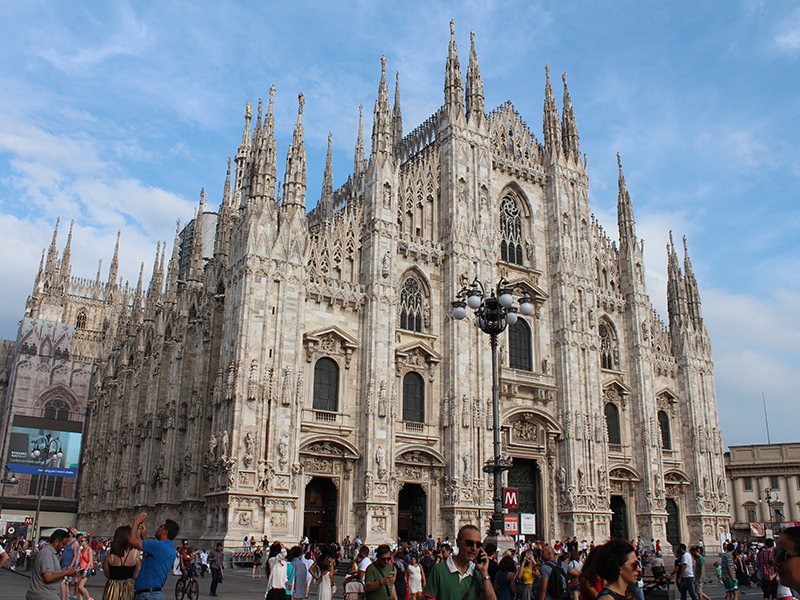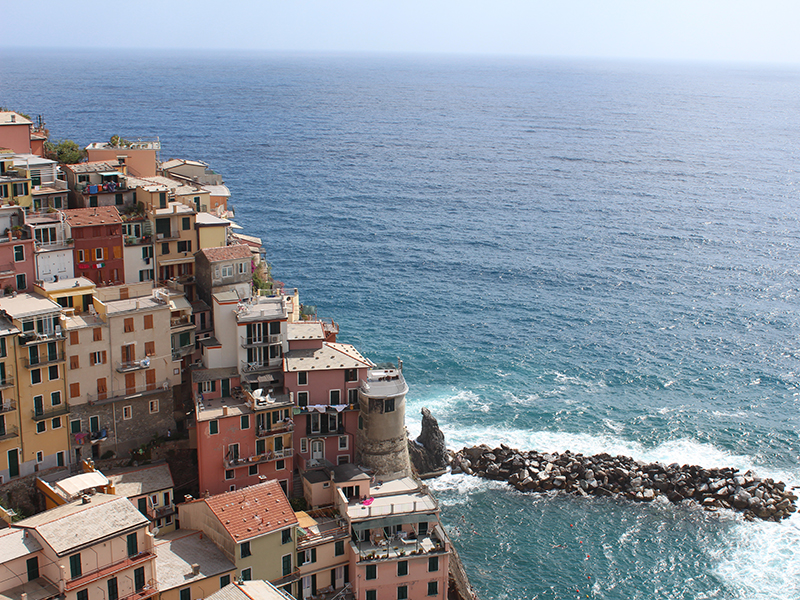Living as an Orthodox Jew can be difficult at times. Among the challenges we face include the cost and availability of kosher food, one less day per week in which to complete personal, school or business tasks and the possibility of having to exhaust all our vacation days to get out of work on the Jewish holidays.
While these issues can be stressful at home, they are certainly amplified when travelling. In unfamiliar territory that may lack the Jewish necessities required by those who live an Orthodox lifestyle, and surrounded by people who speak a foreign language, one can be left at a distinct disadvantage. With the right amount of planning, however, these challenges can generally be overcome.
Over the summer, my wife and I toured around Italy. Here are some of the biggest challenges we, as Torah-observant Jews, encountered, and some of the tips we learned for how to overcome them.
READ: HONEYMOONING WHILE ORTHODOX, IN JEWISH ITALY
Keeping kosher is tricky. A quick scan of items in an Italian supermarket will expose an obvious dearth of kosher-certified products. In fact, with the exception of a few Jewish grocery stores and a small number of shelves dedicated to Israeli imports in the country’s largest cities, my wife and I found about three things bearing a hechsher during our three weeks abroad. Kosher symbols were even conspicuously absent from global brands like Coca-Cola, Pepsi and Kellogg’s Corn Flakes. That’s not to say they weren’t acceptable to eat or drink, just that kosher is done differently in Europe.
Orthodox Jews in North America are both fortunate and unfortunate to have an abundance of products marked as halachically permissible for consumption by a number of reliable agencies. This ubiquity is certainly helpful in day-to-day life. But it can also make us dependent and unsure about how to cope when we’re in unusual surroundings.
It is imperative that visitors prepare and have adequate knowledge about the laws of kashrut, in order to keep kosher in a country like Italy. While information about kosher stores and restaurants can be found online at JewishEurope.org, consulting a kosher product list, like the one available from the Italy Kosher Union’s website, is essential when browsing supermarket aisles. Even then, people may not always be able to find everything they’re looking for in every place, so it’s good advice to stock up if you’re uncertain what will be available at your next destination. It’s also a good idea to bring a small stockpile of non-perishable items like peanut butter, rice cakes and Tradition soups from home.

Shabbat can also present various challenges while travelling, both before and after sundown on Friday evening. In addition to giving up an entire day of touring to the weekly celebration, travellers will likely have to forfeit a number of hours on Friday afternoon to shop for food and return it to the mini-fridge in their hotel room, so it doesn’t spoil in the heat of the day. Don’t forget to pick up challah and grape juice, as well!
Before Shabbat, one will also need to decide which lights to leave on in the room and experiment with how best to dim them in the safest and most effective way. If the room’s fridge contains a light, it can generally be turned off by taping the mechanism that triggers the bulb. (If the fridge does happen to have a switch to turn off the light, ensure that flipping it doesn’t disable the unit entirely, cooling function and all, like yours truly did in a hotel just outside of Venice.)
The hotel’s features will also make a difference. While most places use electronic door keys, some also have motion-sensor lights in the hallways, which can trap Orthodox vacationers into the confines of a one-bedroom unit with a fraction of the square footage of a modern Canadian condominium for 25-plus hours. Even if one is able to get out of the room and past the (likely electronic) front doors of the hotel, it’s advisable not to stray too far, as no Italian city, with the exception of Venice, has the benefit of an eruv to allow people to carry items such as maps on Shabbat.

Again, planning is key. A book, a pack of cards and travel-sized board games can help pass the long summer afternoons. It’s also a good idea to pack some tealights and a lighter or matches to usher in Shabbat, as well as a small container of spices and a candle, for saying Havdalah once it’s over.
Besides Shabbat, a traveller’s itinerary may be disrupted by other events on the Jewish calendar, such as the Nine Days, a period of mourning at the beginning of the month of Av, in which certain activities and foods are restricted, in commemoration of the destruction of the First and Second Temples. During this stretch, strict adherents to these customs may have to re-wear their previous attire, due to the prohibition against laundering clothing. They would also have to forgo swimming off the beautiful Italian coast and could find themselves, like we did, eating at the same dairy restaurant for three consecutive days because of the prohibition against eating meat.
The Nine Days, of course, also culminate with a full day of fasting on Tisha b’Av. In addition to the challenges of a full day of touring on an empty stomach, the day requires Orthodox Jewish men to carve out some time to daven Minchah with their tallit and tfillin, which probably means having to return to the hotel. (Oh, and remember to pack a pair of non-leather shoes for any outing you do decide to undertake on that day.)
There’s also the broader issue of being a Jew in a largely Christian country, where many of the historic sights are churches. While some people may consider visiting these points of interest to be religiously problematic and thus choose to take a pass on them, others are unable to resist the allure of such notable places as the Sistine Chapel and its famed ceiling, and content themselves by taking extra care not to bow their heads near the numerous crosses – this is especially crucial for men wearing a kippah, as all males are asked to remove their caps upon entering. (Women who adhere to the laws of tzniut, or modesty, actually have an advantage in this instance, as they will not have to worry about being barred entry due to bare shoulders or short skirts.)
These are some of the barriers to travelling in Italy as an Orthodox Jew. However, even if you fall into that denominational category, you need not be daunted, or feel as though you must compromise your religious values, in order to visit this beautiful, historic country. There are solutions to the challenges you’ll face – you just need to put in the time and effort to research how best to manage them.



